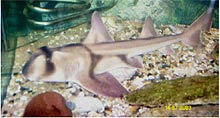|
Why are there more shark attacks in our waters?
Dr Scoresby Shepherd, Senior Research Scientist, SARDI Aquatic Sciences, one of our long-time supporters, has kindly responded to this question.
My argument explaining the increased frequency of shark attack rests on two premises:
| |
1. Natural prey being apex predators have generally declined from 50-90% in the last 60 years.
The main ones are tuna, snapper, kingfish. Only the NZ fur seal has increased. (The main prey are pups available only in the pupping season). Another prey, the dolphin is probably equally abundant now, although we don’t really know.
2. The presence of humans in the sea has increased enormously over the same period.
The argument is not so much that prey switching to humans occurs, although of course the prey chosen depends on availability and abundance of alternative prey.
It is rather that sharks are likely to be hungrier now than before and more likely to explore alternatives, such as humans The statistics bear this out and show an increasing frequency of shark fatalities over the last 60 years. |

Our “PJ99”, a Port Jackson shark
Did you know that most sharks
will
not attack humans? |
It is interesting to note that shark attack frequency has also increased in the same fashion in California. There seals have also increased, and other main prey decreased, and an argument of biologists there is that, given the similarity in appearance of surf-boards to a seal on the surface (to a hungry shark), it will make an exploratory bite at the surfer in mistake for a seal. To support this biologists show a concomitant increase in numbers of both attack frequency and seal numbers. Either way, one can’t leave out of the equation the other natural prey of sharks.These ideas are difficult to test, except by using dummies, and there are well-justified objections to such experimentation.
Scoresby strongly believes that we need more research into the great white's behaviour and movement. The research diving community is concerned, because without research we cannot make the best decisions on how to minimise diver interactions with these awesome creatures.
From "The Discovery News", newsletter of the Star of the Sea School Marine Discovery Centre.
Our “PJ99”, a Port
Jackson shark
Did you know that most sharks will not attack humans? |
